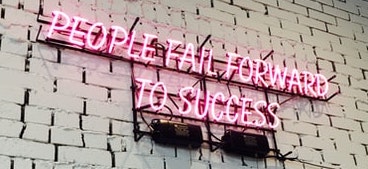Every time I have a medication change, I watch season 2, episode 6 of Bob's Burgers. There is something about the way Gayle barges in with "Guess who's on new meds!" that gets me every time. Perhaps it is because of my own medication history.
I haven't discussed it much here, but my genotype does not play nicely with most medications. They either don't work at all or give me horrific side effects. For most of my life, I felt like I'd been duped. I was Georgie looking at Pennywise in the gutter, but instead of promises of a paper boat, I was told I could function in neurotypical society.
I didn't lose an arm or my life, just my physical health and all hope of behaving like a Normal Human Being™. After several years and two seizures, the GeneSight test rectified this for me and revealed the two medications that could treat my depression/anxiety and behave as expected.
What does this have to do with coding? In December, I had the privilege of adding ADHD to my long list of diagnoses. Unfortunately, GeneSight does not cover the drugs that treat ADHD, so my healthcare provider and I are stuck playing the guessing game of what will actually work.
We tried Strattera and I became like a sleeping dragon with extraordinarily high blood pressure. After work, I'd crash in my bedroom and annihilate anyone who bothered me. I use the term "bother" very loosely, as it was mostly my dear husband checking in to bring me food and ensure I was still among the living, bless his heart.
Now I'm trying Adderall and hoping it will help my poor working memory. Working memory is what most people think of as short-term memory. While most people may be able to listen to instructions and immediately put them to use, I cannot. It has nothing to do with paying attention, it's that my working memory is so bad, I have no recollection of what I was just told. It's the same reason I may read a sentence or paragraph over and over again and have no idea what it said.
Needless to say, this is a problem I am learning to navigate in my coding career. A lot of coding is reading, whether it be in the form of language documentation, proofreading your code, or deciphering another person's.
My brain hates this. It causes me to make a lot of basic mistakes and I feel especially stupid when other people notice them (which happened a lot today). Here's how I'm managing it:
- I chose to stop telling myself that I am stupid. Why? Well, it isn't particularly constructive and I'm not stupid. I got here despite my ADHD, which is awesome.
- Write down everything. I do my best to keep a written record I can refer to. It isn't always helpful because I like to get hyper-focused on one thing and may forget finer details, but it's better than nothing.
- I told my boss. If you're comfortable with yours, this may help you, too. I explained that I'm in treatment to find a medication that works and I was worried people may mistake my crap working memory for not listening/caring. He was super cool and understanding about it. This helped ease my anxiety because I knew especially with the medication change that I'd be prone to leaving seemingly careless mistakes.
- Read things out loud. It will help you slow down and give you more time to process. This is especially helpful if you're facing a wall of text that looks like a blur. I will highlight with my cursor as I go along to help keep my place.
- Stop being embarrassed. This is a hard one, but when you find yourself making obvious mistakes, it is best to correct them and move on. There's no need to be constantly apologizing or explaining yourself. Your identity should not be rooted in what others think of you because people's opinions are unstable and constantly changing. You need to find your security in something immutable.
So, that's why I haven't posted. I study a lot in a vain attempt to make up for my goldfish memory and I've been struggling with medication side-effects.
All of that being said, I do feel optimistic. Despite my ADHD, I got through college and coding bootcamp. I can recall feeling overwhelmed/making "dumb" mistakes at previous jobs, only to excel with repetition.
P.S. If you're struggling, feel free to reach out! I'm always happy to talk. If you also have a mental disorder, please know that you CAN still achieve your goals! You may be wired differently and have to work harder than the average person, but it can happen! With every accomplishment, you can feel proud that you did it in spite of what can often feel like an impediment! (Disclaimer: It took me 29 years to realize this, so don't worry if you're not there yet.)




